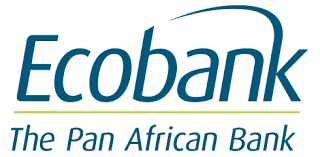Business
Ecobank To Challenge N72.2bn Damages Awarded Honeywell

The last has not been heard of the protracted court case involving Ecobank Nigeria Limited and Honeywell Flour Mills Plc, with the former poised to file an appeal against the N72.2 billion damages awarded the later.
This is based on conviction within the bank that the judgment of the Federal High Court (FHC), which was delivered on Tuesday in Lagos by Hon Justice Mohammed Liman would not pass the test of the law.
Biztellers gathered from those who know at the lender that it “will vigorously challenge same, and remain confident that it can reverse this judgment at the higher courts.”
In a reaction to the judgment, they recounted on Wednesday that the instant suit was an action instituted in 2018 for the enforcement of the bank’s undertaking to damages which was commenced pursuant to its winding up petition and the Ex-Parte Orders which were granted in favour of the bank.
It said, “We challenged the action through a Notice of Preliminary Objection dated 16th October, 2018 whereby we challenged the jurisdiction of the Federal High Court, as (among other reasons), the action did not fall within the provisions of Section 251 (d) of the Constitution, being that the subject matter of the suit was for the claim of damages arising out of an Ex-Parte Order, as opposed to a banker-customer relationship.
“Trial was concluded in this matter since 9th March, 2021 and the parties adopted their final written addresses alongside our notice of preliminary objection on the 16th March, 2022, the court then adjourned the matter to 27th May, 2022 for judgment.
“While the court failed to deliver judgment on the said date, the registrar of the court promised to inform counsel whenever the judgement was ready.
“In the wake of the Supreme Court’s decision in the bank’s favour, in Suit No. SC/CV/210/2021 which was delivered on 27th January 2023, the bank further filed a motion on notice dated 9th March, 2023 to dismiss the suit on the grounds that same has become academic as a result of the judgment entered in favour of Ecobank wherein the Supreme Court held that Honeywell remained indebted to the bank.”
The sources also added that, “The court heard (the) motion dated 9th March, 2023 and adjourned to 23th June, 2023 for ruling on our two applications and also for delivery of judgment.
“The court consequently delivered the said ruling/judgment today July 18 via a virtual proceeding at about 4pm. In its judgment, the court dismissed the two applications we filed, holding that it has jurisdiction to entertain the suit and also that the suit had not become academic.”
Ecobank maintained that in reaching its judgment, “the court ignored/refused (among others): Submissions showing that the Ex-Parte Orders were discharged on points of law and not that it was frivolously obtained by the bank; that the Ex-Parte Order lasted for less than two weeks, contrary to the claim of Honeywell which was said to have covered the period of three years; that the documents presented by Honeywell particularly the annual returns did not show the alleged damage, hence same was indeed non-existent;
“That documents from various other banks who were served with the ex-parte order showed that the Honeywell companies were indeed highly indebted to them, hence there was no way the Ex-Parte Orders would have frozen funds in the said banks; and more importantly, the court refused all the objections regarding the documents maliciously prepared by Honeywell for the sole purpose of instituting the suit and claiming unjustifiable sums from the bank.”
The lender pointed out that it is a member of the Ecobank Group, the Pan-African Bank which is proudly and fully committed to transparency in all the countries where it operates, and abide by laws and regulations.
It therefore, expressed the desire that the matter should be conclusively determined in line with the applicable judicial process.
Business
Savannah Energy Provides Unaudited FY 2024 Trading Updates

Savannah Energy has shared a trading update on its Nigerian operations and other markets in Africa, including up-to-date cash collections in its Nigerian business.
According to the update, made available on Thursday in Lagos, its gross production in Nigeria averaged 23.1 Kboepd for FY 2024, broadly in line with the prior year’s 23.6 Kboepd, of which 88% was gas (FY 2023: 91%).
On the update, CEO of Savannah Energy, Andrew Knott, said, “I am pleased to provide a FY trading update which demonstrates the continued progress we have made in 2024, a year which saw the highest level of cash collections ever recorded by our Nigerian business. 2025 is expected to be an exciting year for our Company: we have a large planned operational programme in Nigeria which is anticipated to enhance both our oil and gas production levels and capacity; we intend to progress our R3 East oil development project in Niger; we continue to pursue key acquisitions in the upstream oil and gas space; and we continue to seek to build our power business.
“Fundamentally, Savannah remains unequivocally an “AND” company, seeking to deliver strong performance both for the short AND long term across multiple fronts, and pursuing growth opportunities in both the hydrocarbon AND power sectors.”
The update It also shows that it generated a Total Income of US$393.6 million in 2024, compared to FY 2023’s US$289.8 million. This consists of Total Revenues of US$258.7 million and Other operating income of US$134.9 million.
The report also shows that Savannah’s FY 2024 Total Revenues were ahead of the previously issued financial guidance of greater than US$245 million, while FY 2024 financial guidance is reiterated for Operating expenses plus administrative expenses at ‘up to US$75 million’. The company expects its FY 2024 capital expenditure to come in lower than planned (previously guided at ‘up to US$50 million’) due to the phasing of spend.
ALSO READ: CSR: Dangote Awards Scholarships To 473 Students
According to the update, Savannah’s cash collections in 2024 amounted to US$248.5 million, a slight increase from the US$206 million it received in 2023. The report further shows that its cash balances as at 31 December 2024 stood at US$32.6 million, compared to the 31 December 2023 figure of US$107.0 million.
The report shows that the company’s midstream subsidiary, Accugas Limited, had as at 31 December 2024 drawn down on its NGN332 billion of the NGN Transitional Facility, with the resulting funds being converted to US$, which, along with cash held, was used to partially prepay the existing Accugas US$ Facility, leaving a balance as at 31 December 2024 of approximately US$212.3 million.
The report also provided new updates on Accugas’ US$45 million Uquo Central Processing Facility (“Uquo CPF”) compression project in Nigeria, noting that its commissioning which will enable the expansion of gas production in the medium term is well underway.
The report highlighted the progress being made in the procurement process of long lead equipment in Nigeria for a potential two-well drilling campaign on the Uquo Field in H2 2025, with an additional gas development well expected to add up to 80 MMscfpd of supplemental production capacity and a potential exploration well targeting an Unrisked Gross gas initially in place (“GIIP”) of 154 Bscf (25.7 MMboe) of incremental gas resources.
The update shows that progress is also being made in the planned Savannah acquisition of Sinopec International Petroleum Exploration and Production Company Nigeria Limited, whose principal asset is a 49% non-operated interest in the Stubb Creek oil and gas field (“Stubb Creek”), with regulatory approval and completion being targeted in Q1 2025. Following the completion of the acquisition, Savannah intends to commence an expansion programme which is anticipated to increase Stubb Creek gross production from an average of 2.7 Kbopd in 2024 to approximately 4.7 Kbopd.
In Niger, Savannah continues to seek to progress its 35 MMstb (Gross 2C Resources) R3 East oil development in South-East Niger, while it continues to push for a potential alternative transaction structure to acquire a material stake in producing oil and gas assets in South Sudan as previously announced on 20 December 2024.
On the renewable energy front, the update shows that Savannah has up to 696 MW of renewable energy projects currently in motion, including the up to 250 MW Parc Eolien de la Tarka wind farm project in Niger and the up to 95 MW Bini a Warak hybrid hydroelectric and solar project in Cameroon. A firm believer in Africa’s transition to renewable energy, Savannah continues to target a portfolio of up to 2 GW+ of power projects in motion by the end of 2026.
Business
Nigeria Can Achieve 5.5% GDP Growth – NESG
The Nigerian Economic Summit Group (NESG) has projected that the country has the potential to achieve a 5.5% growth in Gross Domestic Product (GDP) if critical policy reforms are sustained.
This was disclosed on Thursday during the launch of the NESG’s 2025 Macroeconomic Outlook report.
Speaking at the event, the Chief Economist and Director of Research & Development at NESG, Dr. Olusegun Omisakin, highlighted the need for more efficient policy implementation to unlock Nigeria’s economic potential.
READ MORE: Davido Is Richer Than His Billionaire Father – Ibrahim Chatta Claims
“We believe at the optimal level, if we embark on more efficient policy reforms, the Nigerian economy has the potential, the GDP to end up at 5.5 per cent, and we believe that this is achievable,” Omisakin stated.
More to follow……….
Business
CBN Approves Release Of Nigerian FX Code
The Central Bank of Nigeria (CBN) has announced the release of the Nigerian Foreign Exchange (FX) Code, a set of guidelines designed to promote ethical conduct among authorized dealers in the country’s FX market.
In a statement, the apex bank disclosed that the official launch of the Code would take place on Tuesday, January 28, 2025, at the CBN Head Office Auditorium in Abuja.
READ MORE: Dangote Denies Culpability In Pumping Up Petrol Price
“The Central Bank of Nigeria has approved the release of the Nigerian Foreign Exchange (FX) Code as a guideline to the banking industry to promote the ethical conduct of authorised dealers in the Nigerian Foreign Exchange Market,” the statement read.
The introduction of the FX Code is expected to enhance transparency, accountability, and professionalism within Nigeria’s foreign exchange ecosystem, aligning it with global best practices.
The event is anticipated to attract key stakeholders in the financial and banking sectors, as well as representatives from authorized FX-dealing institutions across the country.

















